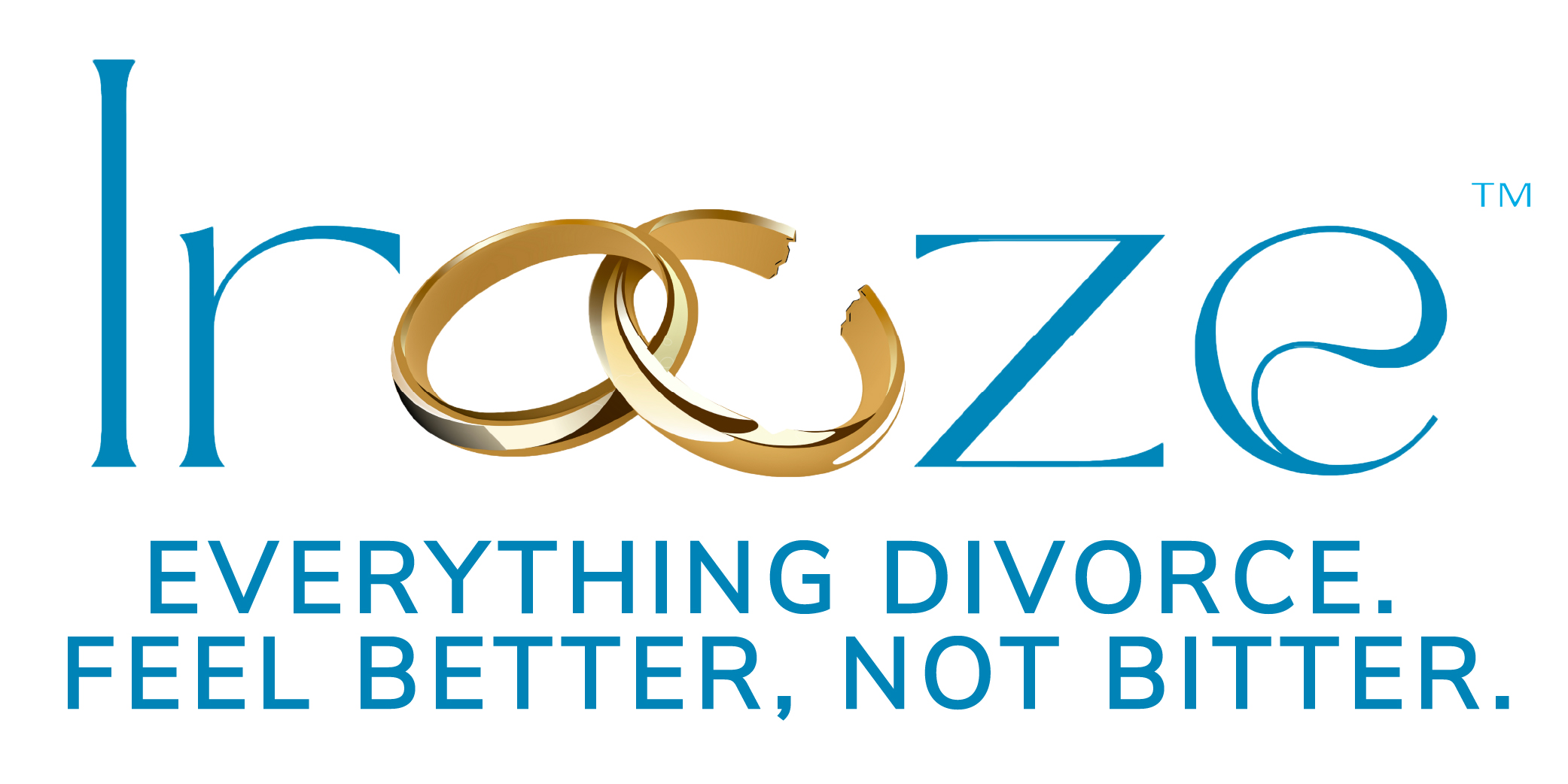
How to Manage Emotional Triggers During the Stages of Divorce
Emotions like anger, revenge, and guilt can easily take over during a divorce, leading to costly mistakes such as engaging in unnecessary legal battles or retaliatory actions. These decisions not only drain your energy but also inflate your legal costs. Learning how to manage the emotional stages of divorce is mandatory to protect your mental health and make informed decisions during this life transition.
Divorce can be one of the most emotionally turbulent times in a person’s life. The impending divorce brings feelings of anger, betrayal, guilt, and even revenge often bubble to the surface as the process unfolds. These emotions are understandable, but they can become dangerous when left unchecked, leading to costly mistakes—both financially and emotionally. Reacting to these emotional triggers can cause you to engage in unnecessary legal battles, retaliatory actions, or fixate on past wrongs, all of which inflate legal fees and prolong the divorce process.
Understanding how to manage emotional triggers not only helps you navigate your divorce more smoothly, but it also empowers you to make better decisions, allowing you to focus on building a brighter future.
Divorce stirs up a range of powerful complex emotions that can cloud judgment and lead to impulsive decisions:
- Anger and Revenge: It’s tempting to want to “get even” with your ex, especially if there has been betrayal, such as infidelity. However, revenge-driven decisions rarely serve anyone. They can escalate the conflict and lead to more time in court or mediation, increasing the emotional toll and legal costs.
- Guilt: Guilt can lead to overcompensation in areas like asset division, alimony, or parenting arrangements, trying to “make up” for perceived wrongs. This, too, can backfire, leaving you feeling financially unstable or resentful down the road.
- Resentment: Holding onto resentment over past hurts can paralyze your ability to think clearly and work effectively with your lawyer. It can lead to a fixation on punishing your ex rather than moving toward a resolution that benefits you.
Case Study: When Lisa’s Emotional Triggers Took Over
A divorced coaching client of mine, Lisa, was facing this exact struggle. Filled with anger and resentment over her husband’s multiple affairs, Lisa constantly referred to herself as the victim of their failed marriage. Her anger was understandable—her husband’s infidelity had shattered her trust and sense of security. However, her fixation on proving how wrong he was becoming a significant obstacle in her divorce proceedings.
Instead of focusing on the critical legal issues, such as asset division and custody arrangements, Lisa spent hours trying to get her lawyer to determine exactly when the affairs had started. She wanted to know every detail—how long they had lasted, who knew, and how her husband had been able to keep them secret. She was so consumed by uncovering the timeline of betrayal that she couldn’t focus on the most important aspects of her future.
Lisa’s lawyer, trying to remain professional, struggled to redirect her attention back to the matters that would shape her post-divorce life. Meanwhile, her legal bills were mounting, and the divorce process was dragging on. Every extra request for information, every hour spent investigating her ex’s affairs, and every courtroom appearance stretched the process and inflated the costs.
What Are Emotional Triggers in Divorce?
Emotional triggers are events, people, or situations that can provoke a strong emotional response, often leading to feelings of anxiety, anger, or sadness. During the divorce process, these triggers can be particularly potent, as the upheaval and stress of the situation can make emotions run high. Understanding what triggers these emotions is the first step in managing them effectively.
Common Emotional Triggers You May Experience During Divorce:
- Seeing or interacting with your former spouse: Encounters with your ex can bring up painful feelings and memories, making it difficult to stay calm and focused.
- Receiving news about your former spouse’s new relationship or life: Learning about your ex moving on can stir up feelings of jealousy, anger, or sadness.
- Dealing with financial anxiety and divorce stress: The financial implications of divorce can be overwhelming, leading to anxiety and fear about the future.
- Coping with changes in your living situation or daily routine: Adjusting to a new home or a different daily schedule can be disorienting and stressful.
- Feeling overwhelmed by the divorce process or legal proceedings: The complexity and length of the divorce process can be daunting, causing frustration and emotional exhaustion.
By recognizing your emotional triggers, you can prepare yourself for these situations and develop healthy coping mechanisms to manage your emotions. This awareness allows you to respond thoughtfully rather than react impulsively, helping you navigate the divorce process with greater resilience.
How Rapid Resolution Therapy (RRT) Helps Heal Emotional Wounds from Divorce

In our sessions, I recognized that Lisa’s intense emotions were holding her back from making progress. Through the use of Rapid Resolution Therapy (RRT), I helped her begin to process the deep feelings of anger, betrayal, and resentment that had been fueling her actions. RRT is a therapeutic approach designed to quickly and effectively clear emotional triggers, helping individuals reframe their thinking and release the hold that past traumas have on their present behavior. In fact, a recent study by the American Academy of Matrimonial Lawyers found that 68% of divorce attorneys cite emotional decision-making as a key factor that prolongs settlements.
As Lisa began to work through these emotions, we focused on shifting her perspective. The grieving process can involve various stages similar to mourning a death, highlighting the complexity of emotions individuals experience as they work through their feelings and ultimately strive to move forward and heal. Instead of seeing herself as a victim trapped in a web of betrayal, she started to view the situation more objectively.
Shifting Focus: How Emotional Clarity Can Lead to Healing and Freedom
While Lisa’s experience highlights one common path, many men and individuals in same-sex marriages face different emotional triggers, such as isolation or identity shifts, that deserve equal attention. She began to understand that the affairs were not the cause of her marriage’s breakdown, but rather a symptom of deeper issues that had existed long before. In recognizing this, she was able to let go of her fixation on her husband’s infidelity and start thinking about her own future, free from the weight of the past.
As Lisa worked through her emotions, she began to develop compassion for both her and her ex. This compassion didn’t mean excusing his behavior, but it allowed her to see that holding onto anger only hurts her more in the long run. The emotional clarity she gained helped her shift focus from revenge to reclaiming her freedom and well-being.
The Benefits of Managing Emotional Triggers and Negative Feelings
Once Lisa was able to let go of the past and manage her emotional triggers, several positive changes occurred:
- She became a more effective partner in the legal process: No longer obsessed with unearthing the details of her husband’s affairs, Lisa was able to collaborate with her lawyer on the matters that truly mattered—such as securing her financial future, navigating custody arrangements, and moving the divorce forward.
- She reduced her legal costs: By letting go of the desire to control every detail and win every argument, Lisa’s divorce process sped up significantly. This reduced the number of hours her lawyer had to dedicate to unproductive tasks and led to a much faster and less expensive settlement.
- She reduced her emotional burden: Letting go of anger and resentment freed Lisa from the emotional heaviness that had been weighing her down. She was able to focus on healing, even if it meant functioning at a less than optimal level for a while, rather than reliving the pain of her husband’s betrayal over and over again.
- She gained control over her own life: Ironically, it was only when Lisa stopped trying to control the divorce process that she was able to regain control over her own future. She began to make decisions from a place of calm and clarity, rather than reactionary anger.
Why Self-Care Is Essential During Divorce Recovery
Self-care is not just a buzzword; it’s a crucial practice during the divorce process. Taking care of yourself can help you manage stress, anxiety, and other negative emotions, ultimately improving your overall mental health and well-being. Here’s why self-care is so important during this challenging time:
- How Self-Care Reduces Divorce Stress and Anxiety: Engaging in self-care activities like exercise, meditation, and deep breathing can significantly lower stress levels and help you stay calm.
- Self-Care Improves Mental Health: Regular self-care can boost your mood, reduce symptoms of depression and anxiety, and enhance your overall mental health.
- How Self-Care Increases Resilience: By taking time for yourself, you build resilience, making it easier to cope with the challenges and changes that come with divorce.
- Self-Care Enhances Self-Awareness: Self-care practices can help you gain a better understanding of your emotions and needs, allowing you to respond to situations more effectively.
Some self-care activities to consider during the divorce process include:
- Exercise or physical activity: Physical movement can release endorphins, improve your mood, and reduce stress.
- Meditation or mindfulness practices: These techniques can help you stay grounded and present, reducing anxiety and promoting emotional balance.
- Journaling or writing: Writing down your thoughts and feelings can be a therapeutic way to process emotions and gain clarity.
- Spending time in nature: Nature has a calming effect and can help you feel more connected and at peace.
- Engaging in hobbies or creative activities: Doing something you enjoy can provide a much-needed distraction and boost your mood.
- Practicing gratitude or positive thinking: Focusing on the positive aspects of your life can help shift your mindset and improve your overall outlook.
Prioritizing self-care is an essential part of the healing process, helping you to navigate the divorce with greater strength and emotional stability.
How to Build an Emotional Support System During Divorce

Building a support network is vital during the divorce process, as it provides emotional support, practical help, and a sense of community. Here are some ways to build a strong support network:
- Reach out to friends and family: Don’t hesitate to talk to friends and family members about your divorce. Their support can be invaluable during this time.
- Join a support group: Connecting with others who are going through similar experiences can be incredibly comforting. Consider joining a divorce support group or an online community for emotional support and shared advice.
- Seek professional help: A divorce coach or counselor can provide guidance and emotional support, helping you navigate the complex emotions that come with divorce. Do you know which professional is best for you? Learn the difference between a divorce coach and a therapist. Perhaps blending a divorce coach with your family attorney is your most optimal strategic plan.
- Connect with others: Attend social events, join clubs or organizations, or volunteer. These activities can help you meet new people and build connections, reducing feelings of isolation.
The benefits of building a support network include:
- Emotional support: Having people to talk to and share your feelings with can provide immense relief and comfort.
- Practical help: Friends and family can assist with tasks like childcare, household chores, or running errands, easing some of the burdens of daily life.
- Sense of community: Being part of a community can help you feel connected and supported, which is especially important during a time of significant change.
- Reduced stress: Knowing you have a support system can provide a sense of security and reduce stress and anxiety.
By building a support network, you can navigate the divorce process with greater ease and confidence, knowing you have people to lean on for both emotional and practical support.
Step-by-Step Guide to Managing Divorce Emotions
Managing your emotional triggers doesn’t mean ignoring your feelings, but it does mean seeking support and learning to respond to them in a way that supports your long-term well-being. Here are some practical steps you can take to manage your complex emotions during divorce:
- Work with a Divorce Coach: A divorce coach can help you identify and manage emotional triggers. They provide a safe space to process your feelings, teach you techniques to cope with stress, and guide you in focusing on the big picture rather than getting stuck in emotional details.
- Practice Mindfulness and Self-Care: Techniques such as meditation, journaling, or even just taking a walk can help ground you when emotions run high. Prioritize self-care to ensure you’re in the right mental state to make rational decisions.
- Reframe Negative Thoughts: Instead of dwelling on what your ex has done wrong or how unfair the situation feels, try to reframe your thinking. Focus on the opportunities that lie ahead and how you can create a positive future for yourself.
- Stay Focused on the End Goal: Rather than getting caught up in revenge or proving a point, stay focused on what truly matters. Try this simple reframing exercise: When you notice a negative thought like “I failed,” replace it with “I’m learning how to rebuild my life with strength and clarity. What do you want your life to look like after the divorce? How can you use this process to secure your future? Staying goal-oriented helps prevent emotional distractions from taking over.
- Limit Contact with Your Ex: If interactions with your ex trigger strong emotions, limit your communication as much as possible. Use legal channels or third-party apps to handle necessary conversations in a structured way that minimizes emotional conflict.
Divorce is not just a legal process, it’s an emotional one. However, allowing your emotions to control your decisions can lead to unnecessary battles, inflated legal costs, and prolonged suffering. By learning to manage emotional triggers, you not only gain control over the divorce process, but you also set yourself up for a healthier, more peaceful future.

